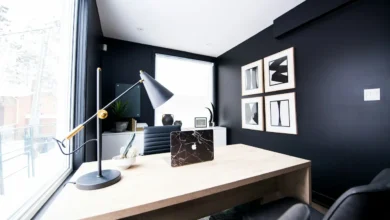Big bother
I flew into Sydney late one Friday evening after a very hectic business trip. Eighteen hours after I’d landed, I realised that I’d left my iPad in the seatback pocket. “Well, that’s it then,” I thought, “It’s gone for good.” In the year that I’ve had it, I’ve grown very fond of my Apple tablet. It travels with me everywhere, often allowing me to leave my boat-anchor of a laptop at home. It’s always in my bag, or in my hand, or nearby. But not this time.

As I mourned the loss and rued my forgetfulness, I recalled that Apple offered a service that allows you to track your iPhone. Did they offer the same service for iPads? I hit the ‘Track my iPad’ service, offered at no charge on Apple’s me.com website. The browser paused for a moment, then – to my shock and amazement – it showed me exactly where my iPad had ended up. Not just the city, nor just the suburb, nor the neighborhood, nor the street, nor even the house. I could see precisely what part of the house my iPad was in.
What to do? I presumed that someone had found my iPad and simply taken it home with them. I sent a message to pop up on the screen of my iPad, saying, ‘I’m lost! Please return me for a reward,’ and gave my contact details. Friends suggested I should also let the police know. Perhaps they could visit the address my iPad was phoning home from, and prompt the residents to return my tablet? When the police came by for my statement, they couldn’t quite believe that I knew the street address of my lost iPad. I showed them the website, and they were gobsmacked.
A day after I alerted the police, I received an email from the fellow who had my iPad. He’d seen the message onscreen, and wanted to return my tablet. The next day, like the setting of some Cold War-era spy thriller, we met on a street corner in Ultimo. He gave me my iPad, and I gave him a reward for his efforts. As I cradled my iPad, I began to realise that what had just happened for me was about to happen for all of us. We’re not that many years away from a time when everything of any value is just as trackable as my thousand-dollar iPad. The electronics required for GPS (location) and 3GSM (communicating via mobile broadband) cost less than fifty dollars today. In five years they’ll cost less than five dollars, and by 2021, they’ll cost just a dollar. Over the next decade, more and more of what we own will announce itself continuously. We’ll never lose keys or luggage or pets or children or even our car. Nothing that we consider valuable – whether expensive or cheap as chips – will go missing.
There’s a joy in this new empowerment, one that’s paired with a rather uncomfortable sense of being watched. When all of our things are constantly spitting out information about where they are, it becomes very easy for anyone to have a good look in on what we’re up to. Apple caught some flack a few months ago for storing information on iPhones and iPads which amounted to a historic breadcrumb trail of your comings and goings with their devices. Google does the same thing, and your mobile carrier knows nearly every move you make (though they rarely mention this).
All of this means that we can spy two huge new industries just over the horizon. Those which will make it possible for you to know everything about everything, and those which will allow you to purchase a little privacy. Imagine if every bus in Sydney was able to tell pedestrians waiting in the rain how long they’ll get wet for (Melbourne buses already do). That kind of intelligence will extend to every service, everywhere in the world. It will change the customer’s expectations, and you’ll need to redesign what you deliver to meet those new expectations.
Privacy isn’t coming to an end, but it is going to become increasingly expensive. We will be able to pay to censor the sensors, lying to them believably, in order to create invisibility around our actions. This might be the real digital divide of the 21st century – not one of access, but of visibility. The rich will be invisible, the rest tracked a thousand different ways. The bright folks who see this world coming, and seize the opportunity to carve out private spaces in a very public world, will find that world beating a path to their (unmarked) doors.
Mark Pesce is the co-inventor of the VRML and founder of Future St, a Sydney media and technology consultancy. He is also one of the judges on ABC’s The New Inventors.




